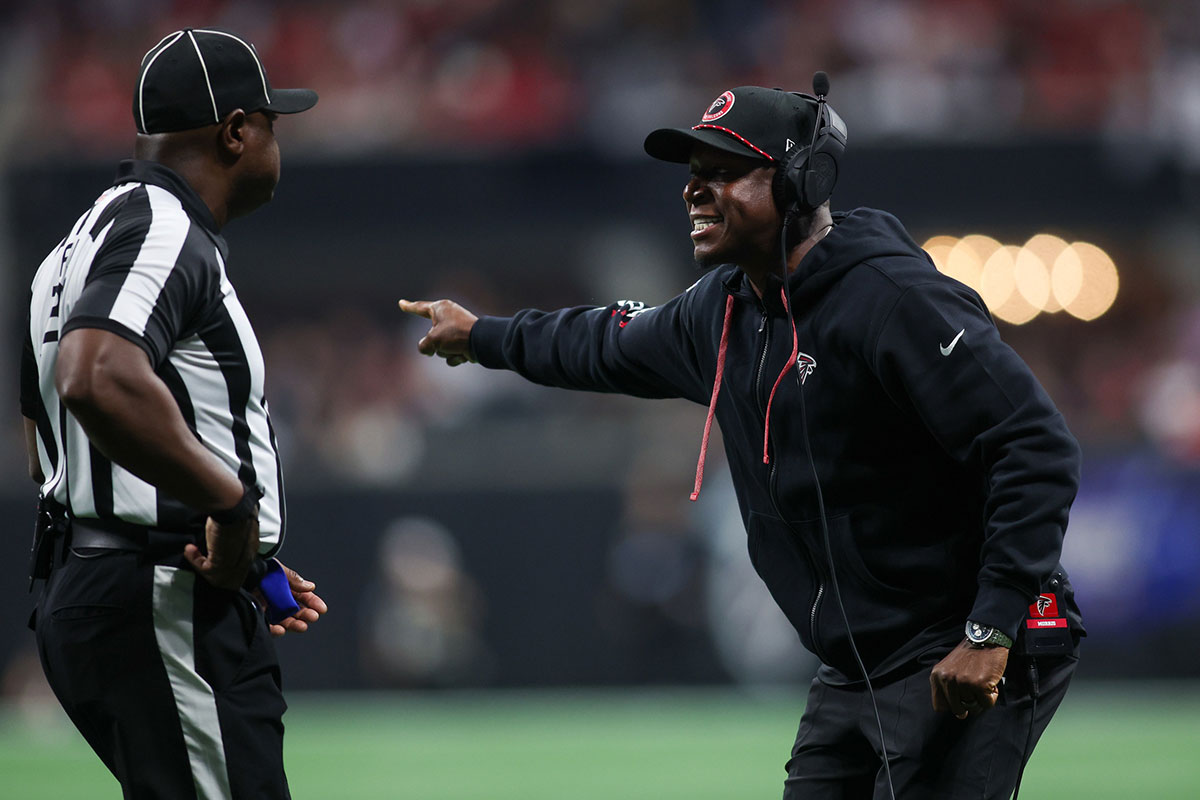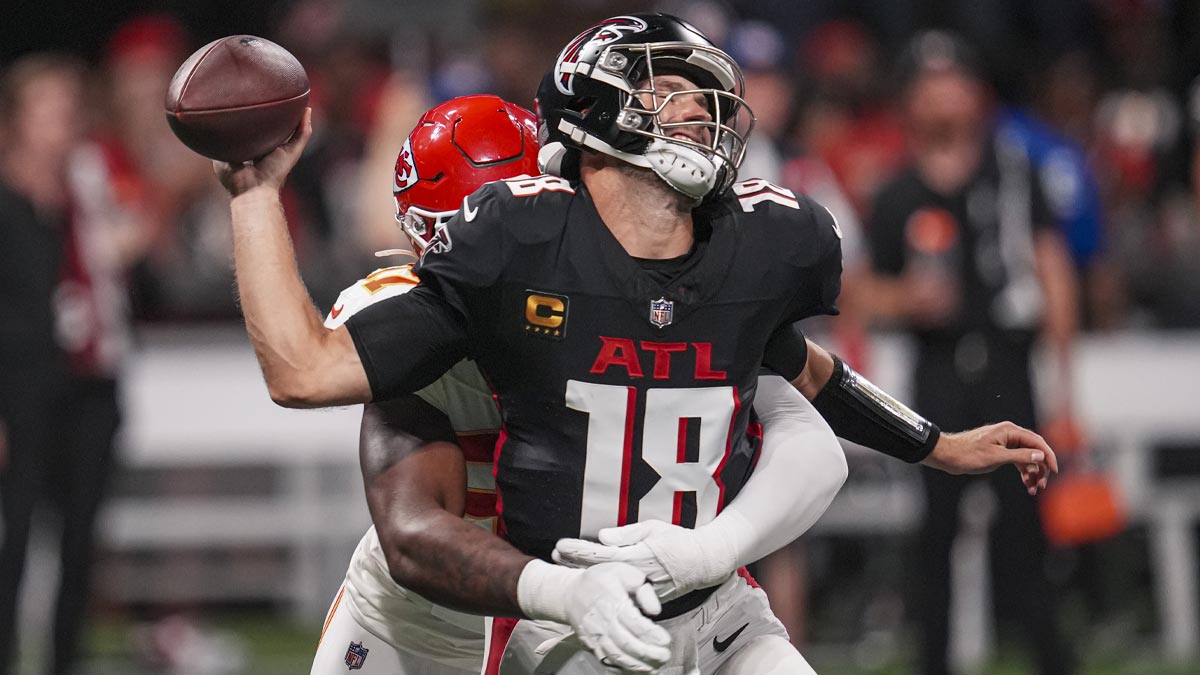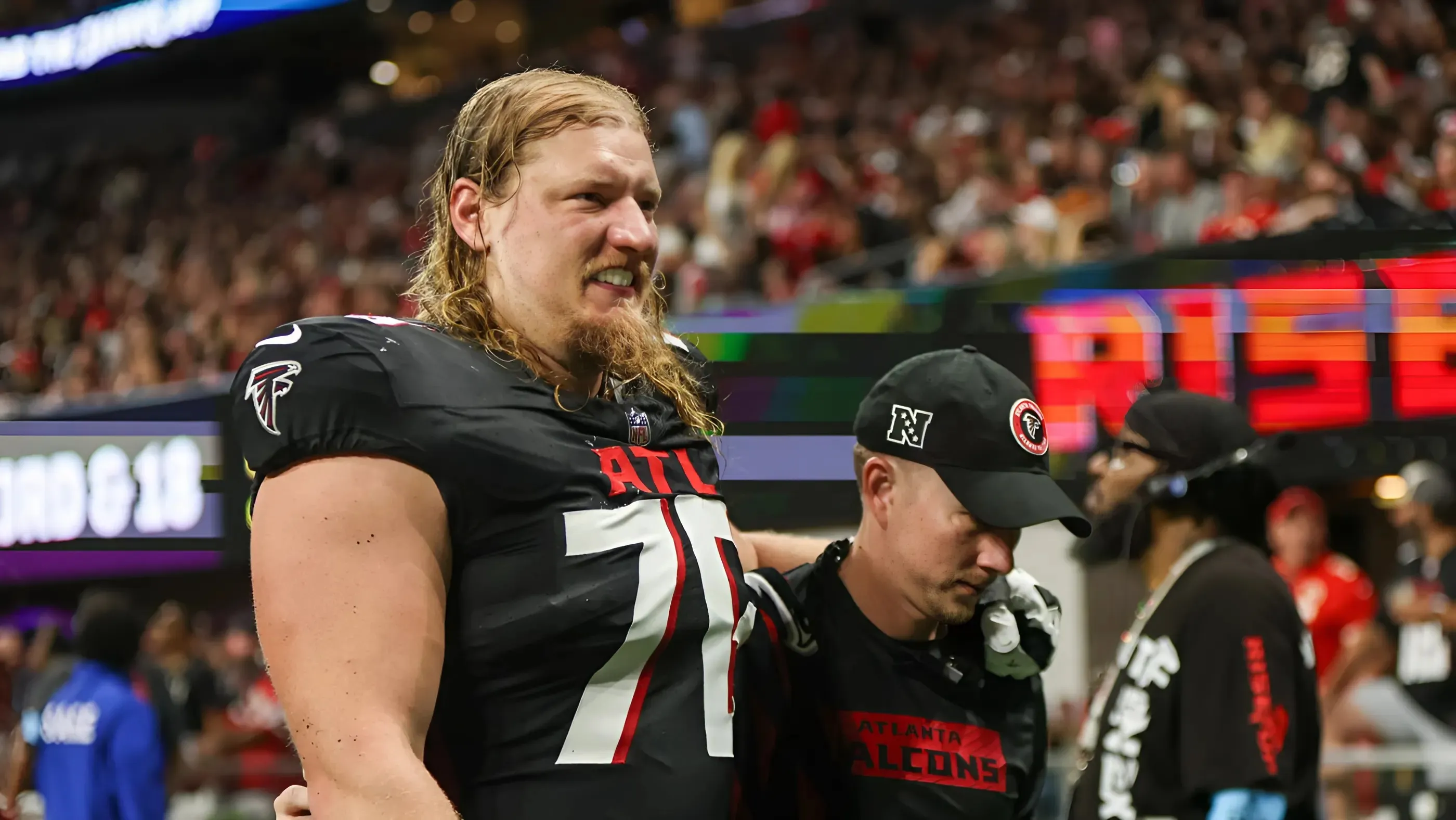A night of promise and hope eventually led to yet another downfall for the Atlanta Falcons, who suffered their second loss of the season to the Kansas City Chiefs on Sunday Night Football. However, the game was not without controversy.
/cdn.vox-cdn.com/uploads/chorus_image/image/73603982/2173834655.0.jpg)
The Falcons (1-2) took an early 7-0 lead in the first quarter on their opening drive, with Kirk Cousins finding Drake London wide open in the end zone. While that sparked energy throughout Mercedes-Benz Stadium, Atlanta couldn’t maintain that momentum for the entire game.
With a final score of 22-17, the Chiefs (3-0) once again overcame the odds, going toe-to-toe with an opponent for the third consecutive week. But a no-call for pass interference on the Chiefs late in the fourth quarter may have cost the Falcons a chance to take the lead with just over four minutes remaining.
Even so, the Falcons forced a punt on the Chiefs’ ensuing drive, getting the ball back with plenty of time to take the lead—and possibly the game—from the two-time defending Super Bowl champions. And that’s where the blame game begins.
Raheem Morris, Zac Robinson’s last offensive play call

While the pass interference no-call is a judgment call that can’t be denied when reviewing the replay—Kyle Pitts was clearly hit before the ball arrived—the Falcons’ final offensive play call is certainly up for debate.
Atlanta got the ball back with 2:26 to drive 65 yards. They worked their way down to the Kansas City 13-yard line but were forced into a fourth-and-inches situation with under a minute left. Given such a short distance to gain, a quarterback sneak with Kirk Cousins or having Bijan Robinson dive up the middle seemed like the most logical options. Instead, Morris and offensive coordinator Zac Robinson called for Robinson to bounce outside to the left. Rather than gaining the first down, he lost three yards, ultimately ending the game.
It can be argued that, with two starting offensive linemen—center Drew Dalman and right tackle Kaleb McGary— injured earlier in the game, running up the middle may have been deemed too risky. Perhaps that’s why they opted to run toward the left side of the line. Still, in that situation, not converting on such a short-yardage play by going vertical instead of horizontal is more acceptable. The final call, however, seemed questionable.
Kirk Cousins late second quarter interception

By the time the first half was nearly over, the Falcons had lost both Drew Dalman and Kaleb McGary, putting the offense in a tough spot in terms of protection for the rest of the evening.
Of Kirk Cousins’ 31 dropbacks against the Chiefs, he was under pressure on 11 of them, per PFF. This led to hurried throws and two fumbles, though both were fortunately recovered. However, one errant throw late in the second quarter ended up in the hands of Chamarri Conner instead of Kyle Pitts.
Though the Falcons’ defense held the Chiefs to their second field goal of the half, it still allowed Kansas City to pull within one point, 14-13, heading into the break.
While it’s not entirely on Cousins, given the offensive line was down two starters and struggling to handle the Chiefs’ pass rush, it’s clear that Cousins—who was never great at moving outside the pocket to begin with—has become less mobile, especially at his age and after last season’s Achilles injury. That might also explain why the Falcons didn’t use him for a quarterback sneak on the final play of the game.
Falcons blow major opportunity
This wasn’t the Falcons’ Super Bowl, but in many ways, it felt like it. Then again, every team that faces the Chiefs, the reigning two-time champs, feels like it’s their own personal Super Bowl from week to week.
The Falcons had a prime-time opportunity on Sunday Night Football to showcase to the world that they weren’t the same ole Falcons and could pull off a massive upset win over the league’s best. Even ESPN’s Adam Schefter noted hours before the game that Falcons officials were calling it “the most significant and important game at Atlanta’s Mercedes-Benz Stadium for their franchise since it opened in 2017.”
The season is far from over, but falling to 1-2 isn’t where this year’s Atlanta Falcons team expected to be entering Week 4 of the 2024 season. Now, they have to regroup as they welcome a much-improved, 2-1, New Orleans Saints team into Mercedes-Benz Stadium, hoping to gain an early advantage in the NFC South. The Falcons cannot afford a third loss this early in the season.



